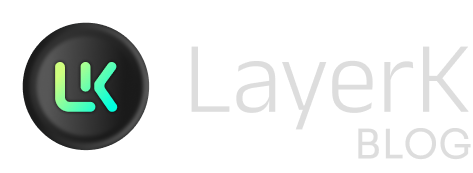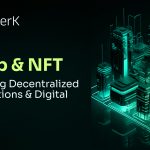Decentralized applications (DApps) are revolutionizing industries by introducing blockchain-based innovations that eliminate intermediaries, increase transparency, and empower users. By functioning on distributed ledger technology, DApps operate autonomously, providing solutions to challenges faced by traditional centralized systems.
In this in-depth article, we will explore 10 potential applications of DApps, detailing how they are transforming sectors ranging from finance and gaming to healthcare and energy.
What Are DApps?
Decentralized applications, or DApps, are software programs that utilize blockchain technology. Unlike traditional apps that rely on centralized servers, DApps are powered by peer-to-peer networks, ensuring that no single entity has full control.
Key Characteristics of DApps:
- Decentralization: Operate on blockchain networks, spreading control across multiple nodes.
- Transparency: Blockchain immutably records all actions, ensuring accountability.
- Autonomy: Smart contracts enable automated execution without human intervention.
- Security: Cryptographic encryption safeguards transactions and data.
- Censorship Resistance: No central authority can alter or block operations.
These characteristics make DApps highly versatile and impactful across various industries.
1. Financial Services and DeFi Applications
Decentralized Finance (DeFi) is arguably the most prominent use case for DApps, disrupting traditional banking systems and empowering individuals with direct access to financial services.
Key Applications:
- Peer-to-Peer Lending and Borrowing:
Platforms like Aave and Compound enable users to lend and borrow assets without intermediaries, earning interest or securing loans using cryptocurrency as collateral. - Stablecoins:
Stablecoins like DAI provide a low-volatility cryptocurrency option, enabling borderless transactions and protecting users from market fluctuations. - Decentralized Exchanges (DEXs):
Uniswap and PancakeSwap allow users to trade cryptocurrencies directly from their wallets, bypassing centralized exchanges. - Yield Farming and Staking:
Users can earn rewards by staking tokens or providing liquidity to DeFi platforms, creating passive income streams. - Insurance DApps:
Platforms like Nexus Mutual provide decentralized insurance for smart contract failures or wallet hacks.
DeFi DApps make financial services accessible to the unbanked while reducing fees and increasing transparency.
2. Gaming and Virtual Worlds
The gaming industry is undergoing a transformation as DApps introduce play-to-earn (P2E) models and blockchain-based economies. These innovations allow players to earn real value through gaming.
Key Applications:
- Play-to-Earn Models:
Games like Axie Infinity reward players with cryptocurrency for their participation, creating new income opportunities for gamers worldwide. - NFT-Based Gaming Assets:
Non-fungible tokens (NFTs) represent unique in-game items such as characters, weapons, or land. Players own these assets and can trade them on marketplaces like OpenSea. - Decentralized Virtual Worlds:
Platforms like Decentraland and The Sandbox allow users to buy, sell, and build on virtual land parcels using blockchain-based tokens. - Interoperable Economies:
Blockchain enables asset portability between games, creating interconnected gaming ecosystems.
The integration of blockchain into gaming is creating a new paradigm where players have true ownership and control over their digital experiences.
3. Social Media and Content Platforms
Social media and content creation platforms built on blockchain address issues like censorship, data privacy, and unfair revenue sharing.
Key Applications:
- Decentralized Social Networks:
Platforms like Mastodon and Steemit give users control over their data and prevent censorship by relying on decentralized hosting. - Tokenized Content Platforms:
Creators can monetize their work directly using tokens. For example, Mirror.xyz allows writers to crowdfund and profit without intermediaries. - Fan Engagement through NFTs:
Musicians and artists can release exclusive content or access rights through NFTs, building stronger connections with their audience. - Data Privacy for Users:
DApps ensure that user data isn’t exploited, providing transparency about how information is stored and used.
With blockchain, social platforms are evolving into user-centric ecosystems where control and revenue are shared equitably.
4. Healthcare and Medical Records
DApps are streamlining healthcare processes by introducing secure, transparent, and interoperable systems for managing medical data.
Key Applications:
- Secure Medical Data Storage:
Blockchain-based platforms like MedRec ensure patient data is encrypted and accessible only by authorized parties. - Patient-Controlled Data Ownership:
DApps allow patients to control who can access their records, enhancing privacy and security. - Interoperable Health Records:
Blockchain enables seamless sharing of medical data across healthcare providers, reducing redundancy and improving care coordination. - Health Tracking DApps:
Decentralized apps provide personalized healthcare solutions while keeping users’ health data private and secure.
By addressing inefficiencies in data management, DApps have the potential to revolutionize the healthcare industry.
5. Supply Chain and Logistics
DApps bring transparency, traceability, and efficiency to supply chains, tackling issues like fraud, counterfeit goods, and inefficiencies.
Key Applications:
- Tracking Provenance:
Blockchain ensures that products are sourced ethically and their origins are verifiable. - Real-Time Monitoring:
DApps like VeChain provide real-time data about product movement and conditions during transit. - Preventing Counterfeiting:
Unique blockchain IDs allow consumers to verify the authenticity of goods, especially in high-value industries like luxury goods and pharmaceuticals. - Smart Contracts for Logistics:
Automated contracts streamline processes like customs clearance and vendor payments.
DApps enhance trust and accountability in global supply chains.
6. Identity Verification and Digital Identity
Self-sovereign identity solutions powered by DApps provide secure and efficient alternatives to traditional identity management systems.
Key Applications:
- Digital Identity Solutions:
Platforms like Civic empower users to own and control their digital identities without relying on third parties. - Decentralized KYC Processes:
DApps simplify Know Your Customer (KYC) checks, enabling secure and reusable identity verifications. - Fraud Prevention:
Blockchain-based identities reduce the risk of identity theft by ensuring data is tamper-proof.
These solutions pave the way for secure online interactions while preserving user privacy.
7. Voting and Governance
DApps offer transparent and tamper-proof systems for voting and governance, ensuring fair and democratic processes.
Key Applications:
- Blockchain-Based Voting Systems:
Platforms like Voatz eliminate election fraud by recording votes immutably. - Decentralized Autonomous Organizations (DAOs):
DAOs allow communities to govern themselves collectively, making decisions through smart contract-based voting. - Transparent Corporate Governance:
Companies can use DApps to ensure accountability in decision-making processes.
Blockchain’s immutable nature guarantees the integrity of votes and governance decisions.
8. Real Estate and Property Transactions
The real estate industry benefits from DApps by reducing barriers and streamlining transactions.
Key Applications:
- Tokenized Real Estate Investments:
Blockchain enables fractional ownership, allowing investors to buy shares in real estate properties. - Smart Contracts for Deals:
Automated contracts reduce paperwork, lower costs, and accelerate transactions. - Global Access:
Platforms like Propy facilitate cross-border property sales by removing intermediaries.
These innovations make real estate transactions more efficient and accessible.
9. Education and Learning Platforms
Education DApps empower students and educators through decentralized learning environments.
Key Applications:
- Blockchain-Based Certifications:
Verified credentials issued on blockchain prevent fraud and enhance trust. - Tokenized Incentives for Learning:
Platforms like BitDegree reward students with tokens for completing courses. - Decentralized Tutoring Networks:
Blockchain connects students and tutors directly, ensuring fair payment and transparency.
These applications democratize education and incentivize lifelong learning.
10. Energy and Environmental Applications
DApps promote sustainability by enabling innovative solutions for energy and environmental challenges.
Key Applications:
- Peer-to-Peer Energy Trading:
Users can trade excess renewable energy directly on platforms like Power Ledger. - Carbon Credit Trading:
Blockchain enables transparent carbon offset markets. - Renewable Energy Tokenization:
Projects incentivize green energy adoption through token rewards.
These DApps contribute to a greener and more sustainable future.
Challenges and Future of DApps
While DApps offer immense potential, they face challenges such as:
- Scalability Issues: Many blockchains struggle to handle large-scale operations efficiently.
- User Experience: Complex interfaces deter non-technical users.
- Regulatory Uncertainty: Governments are still adapting to blockchain innovations.
Future Trends:
Innovations like Layer 2 scaling solutions, AI integration, and cross-chain interoperability promise to overcome these challenges and drive mass adoption.
FAQs About DApps
What Are DApps in Simple Terms?
DApps are decentralized software applications running on blockchain networks.
How Do DApps Work?
They use smart contracts to execute functions autonomously and securely.
Are DApps Safe to Use?
Yes, DApps offer enhanced security through decentralization and cryptography.
What Is the Main Advantage of DApps?
DApps eliminate intermediaries, providing greater transparency and cost efficiency.
Which Industries Use DApps?
DApps are used in finance, gaming, healthcare, and more.
What Are the Challenges of DApps?
Scalability, usability, and regulatory compliance are significant hurdles.
Conclusion
DApps are reshaping industries by offering decentralized solutions that prioritize user empowerment, transparency, and security. As their adoption grows, they will continue to drive innovation and redefine how we interact with technology.
About LayerK
LayerK is a tech company that combines state-of-the-art hardware and innovative software to empower individuals and businesses to become participants in tomorrow’s digital economy. Our cutting-edge solutions leverage advanced computing and blockchain technology to pave the way for a future of individual independence.
Learn more about the LayerK ecosystem by visiting our website or following us on our social media accounts.
Website 🔗 https://layerk.com/
Telegram | Facebook | Instagram | Twitter | YouTube
Disclaimer
This website combines the expertise of human authors with the power of AI language models. We strive for accuracy, but neither the authors nor the site managers can guarantee the information’s absolute correctness or completeness. The content here, including opinions, news, analyses, and prices, is for general information only. It should never be taken as financial or investment advice. LayerK is not responsible for any losses you may incur from using this information.





